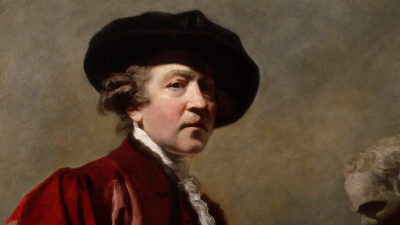Michael Sandle RA on William Dalrymple’s book ‘Return of a King: The Battle for Afghanistan’
Michael Sandle RA on William Dalrymple’s book ‘Return of a King: The Battle for Afghanistan’
By Michael Sandle RA
Published 18 August 2014
The Academician and sculptor finds history repeating itself on reading an illuminating analysis of Britain’s first Afghan war.
-
William Dalrymple’s book Return of a King: The Battle for Afghanistan, now in paperback, has already been justifiably praised to the skies, but as a visual artist with a lifelong interest in war as a subject I feel driven to comment on it too. Books can be life-changing and Ellen J. Hammer’s The Struggle for Indochina (1954) is an earlier example of one that affected me. By reading it I discovered that the British and the Japanese fought side by side in Vietnam in 1945, during the Attlee period, to drive the Nationalist Ho Chi Minh into the jungle and into the arms of Communism, thus sowing the seeds for the Vietnam War.
The book radically changed my views at the time of my first overtly ‘political’ work, A Twentieth Century Memorial (1972-78), which was directly inspired by that war. I first thought rather simplistically that the US was to blame, and therefore the title would be A Mickey-Mouse Machine-Gun Monument for Amerika. But after reading about the little-known involvement of the British I was forced to change the title to one announcing a more universal perfidy.
-

Michael Sandle RA, A Twentieth Century Memorial, 1972-78.
© Michael Sandle.
-
Reading Return of a King has made me feel that I am not the same person I was before I read the book. I have never bought into the Dulce et decorum est pro patria mori ethos – it is the horror, wastefulness and incredible stupidity of war that gets to me – and, until now, I imagined the First World War to be the absolute paradigm of this.
William Dalrymple’s description of the British invasion of Afghanistan in 1839 and subsequent defeat has changed this perspective somewhat, as it is such a convincing account of amazing stupidity, arrogance and cruelty by the British, and of even more incredible cruelty and treachery by the Afghan warring factions, who mostly became subsequently united by an implacable hatred of the invaders.
The description of the suffering endured after the British were routed in sub-zero conditions is the most harrowing I have ever read. It encompasses the fate of the large numbers of sepoys, Indian soldiers who, along with their women and children, died horribly in the snow.
Dalrymple’s description is like something out of a Grimms’ fairy tale – the corpses of British soldiers were preserved by the cold, their eyes pecked out, their bodies impaled on the hollyoaks which the Afghans had cleverly used to block the Tezin Pass – except that this was brutal reality.
This forensic but immensely readable account of the ‘Great Game’ the British played in Afghanistan in the 19th century seems painfully topical now. We achieved so little at such enormous cost then – as is almost certainly the case now – and even our then rivals, the Russians, are rattling the cage again.
Return of a King: The Battle for Afghanistan by William Dalrymple, Bloomsbury Paperbacks, £9.99




